A Step Towards The One Election
Conducting state assembly and Lok Sabha election at 'one Time' will not only
relief the public, economy and administrative load on the 'Election
commission'Â (EC) of India but the government can also function very smoothly
without any kind of hurdles caused by the 'Model Code of Conduct' (MCC).
However, the Election Commission of India always think that ‘one Election’ will
give plenty of time for formulating policies and programmes. At the same time
the opposition party is not willing on the BJP's proposal to conduct 'one
Election System' in India.
Importantly, Former Chief Election Commissioner of India, Dr. S.Y. Quraishi
reminded about the recommendations of the ‘Parliamentary Standing
Committee’ which mentioned four reasons reiterating the need for simultaneous
elections the massive expenditure that is currently incurred for the conduct of
separate elections; (ii) the policy paralysis that results from the imposition
of the Model Code of Conduct during election time; (iii) Impact on delivery of
essential services and (iv) burden of crucial manpower that is deployed during
election time. He further added two more reasons - (v) caste and communal
polarization peeks during elections and (vi) the practice of promising freebies
on the eve of elections. India Foundation, Symposium on “one Nation, one
Electionâ€.
Recently, on 7-8 July, 2018 in the National Capital, The law Commission invited
all the 7 National and 59 recognized state parties to have a consensus on the
'one Election Proposal' but it has a very low response. The another argument was
that the party that the opposition party has said 'one Election' could help
poorly performing BJP ruling state to hide their policy failures to overcome the
election hurdles. While augmenting to the 'Law Commission' invite Communist
Party of India, General Secretary 'Sitaram Yechuri' wrote back saying that the
concept is fundamentally Anti-Democratic and hits at the root of 'Parliamentary
Democratic System' as established by constitution.
Read Also, Why Electoral Funding at Present is The Fountainhead of
Corruption?
All India Majlis-e-Ittehadul Muslimeen (AIMIM) criticized holding one election,
saying  it would beneficial for National Party and weaken the regional parties
from raising local issues. Another argument is of Kalyan Banerjee (MP, Trinamool
Congress) is the PM's Modi's concept of 'one Nation, one
Election' is 'impractical and unconstitutional'. First of all there is no
consensus on the 'one Election'. Secondly, Stakeholders including the
government, election commission and political Parties should find some agreeable
doctrine for conducting one Election.
The NITI Aayog has also favoured this step and argued that one Polls would not
only keep alive the interest of voters but also lighten the financial and
administrative load on the government and the EC. It would also avoid repeated
misuse  of MCC. In December 2017, the parliamentary standing committee on Law
observed that several changes would need to be done in case a decision was made
in this regard including constitutional amendments.
The MCC which comes into force with the announcement of poll dates, prevents
government from announcement any new schemes, make any new appointments,
transfers and posting without the approval of EC, it affect policy making and
governance as the government is trapped in short term thinking it also
destabilizes duly-elected governments and impose a heavy burden on the
exchequer, It also Increase the cost of management to the EC etc. these are
problems associated with frequent election or one election. Economically, the
Elections expenditure in 2009 was Rs 1,100 crores, In 2014 Rs 4,000 crores and
is expected to cross in 2019 Lok Sabha Election.
To be sure, there are multiple issues will need to be addressed if the Nation
intends to move in this direction. The suggestions of different stakeholders
will have to be debated in order to build 'Political Consensus' with regard to
'one Election' system in India. Sure, this will help save public money, it will
be very big relief for political parties that are always in campaign mode, also
relief for election commission of India.
The role of regional parties are becomes important because such issues are
locating in a National Arena only which strengthen the ruling party. So, major
aspirations also comes from regional or local level. While Regional parties will
be more opposed to the idea than national parties because there is always
tendency for voters to vote the same party in power in the state and at the
centre in case the Lok Sabha polls and the state elections are held together. We
need to look at local or panchayat level too. The biggest challenge is achieving
political consensus, which seems to be CHIMERICAL alternative methods are also
important we need to do more discuss about the concept of one Nation and
finalize the best suggestions.
Law Article in India
Legal Question & Answers
Lawyers in India - Search By City
LawArticles
How To File For Mutual Divorce In Delhi

How To File For Mutual Divorce In Delhi Mutual Consent Divorce is the Simplest Way to Obtain a D...
Increased Age For Girls Marriage

It is hoped that the Prohibition of Child Marriage (Amendment) Bill, 2021, which intends to inc...
Facade of Social Media

One may very easily get absorbed in the lives of others as one scrolls through a Facebook news ...
Section 482 CrPc - Quashing Of FIR: Guid...

The Inherent power under Section 482 in The Code Of Criminal Procedure, 1973 (37th Chapter of t...
The Uniform Civil Code (UCC) in India: A...

The Uniform Civil Code (UCC) is a concept that proposes the unification of personal laws across...
Role Of Artificial Intelligence In Legal...

Artificial intelligence (AI) is revolutionizing various sectors of the economy, and the legal i...
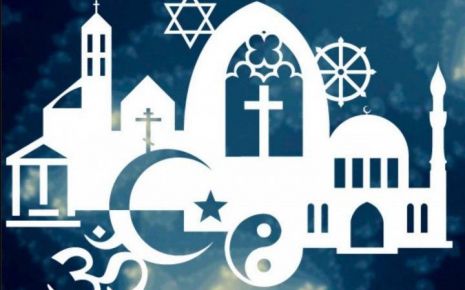
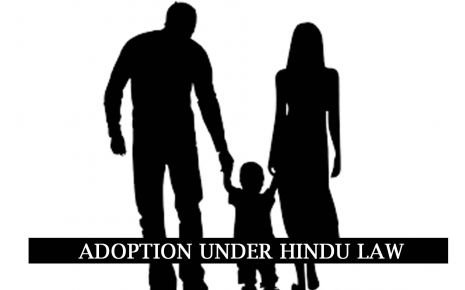
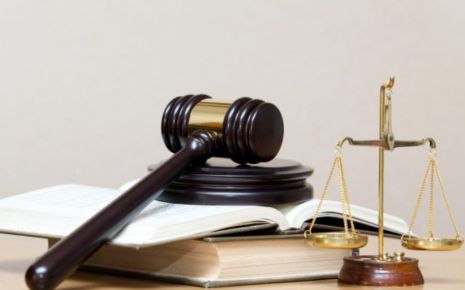

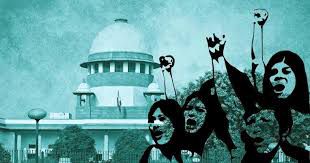
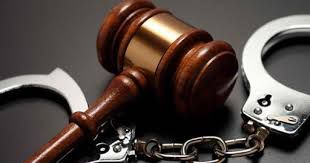


Please Drop Your Comments